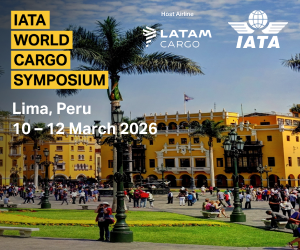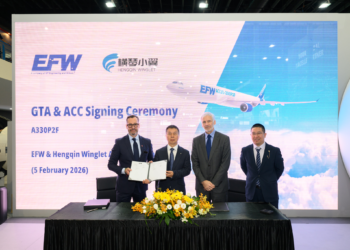Day Two Delivers Practical Strategies on Emissions Compliance, Digital Retail, and Decarbonising Freight
By Cargo Magazine Editorial Team
Birmingham, UK – The second day of Multimodal 2025 sharpened its focus on two defining forces reshaping global supply chains: environmental sustainability and the accelerating transformation of e-commerce logistics.
Held at the NEC, the UK’s flagship logistics and supply chain event again delivered practical, insight-driven content, as senior executives, policy specialists and operational leaders converged across three headline sessions to address the dual challenge of emissions compliance and digital disruption.
Sustainability in Focus: Navigating the Regulatory Crossroads
The morning panel, “How Will the Supply Chain Industry Become Environmentally Sustainable?”, brought together compliance and trade specialists to dissect the growing complexity of carbon regulations and environmental reporting obligations across Europe and the UK.
Anna Doherty, Customs Practice Director at the Chartered Institute of Export & International Trade, warned that a clear understanding of the EU’s incoming Carbon Border Adjustment Mechanism (CBAM) is now critical for UK traders.
“CBAM enters its definitive phase on 1 January 2027. Businesses must use the implementation period wisely to build the data infrastructure they’ll need,” she said.
Doherty noted distinct divergence between EU and UK approaches:
“The EU demands detailed reporting and data granularity, while the UK’s approach mirrors VAT—focused more on tax-based compliance post-movement.”
Ilona Kawka, Imports Advisory Practice Lead at the Institute, reinforced the foundational role of data quality:
“Sustainability digitisation depends on the data you feed it. If your datasets are flawed or incomplete, the reporting will be too. Digital solutions must be built on verified, fit-for-purpose information.”
Real-world examples included new traceability practices emerging in agriculture, where certain producers now trace products back to specific parcels of land—enabling full compliance with deforestation-free sourcing regulations.
Ewelina Pieckowska, Trade Compliance Manager at Arconic, flagged cost pressures and divergent emissions regimes as key hurdles for manufacturers, particularly SMEs.
“Energy prices are still volatile. The UK is examining both direct and indirect emissions for aluminium, whereas the EU currently focuses only on direct scope emissions. This divergence is complicating cross-border compliance for exporters.”
E-Commerce Evolution: Redefining the Consumer Supply Chain
The midday session, “Why Does the UK Lead the World in E-Commerce?”, highlighted how customer expectations and returns management are forcing retailers and their logistics partners to rethink fulfilment models at speed and scale.
Tia Wallace, VP Business Development at DHL Supply Chain, pointed to modular automation as a core strategy for peak season flexibility.
“Our customers need to scale operations up and down with market fluctuations. Modular solutions offer the agility they need to manage seasonal surges efficiently.”
Victoria Pittman, Head of Client Services at Granby, addressed the widening gap between consumer expectations and operational reality:
“Today’s customers expect instant delivery and seamless returns. But the infrastructure and brand experience haven’t always kept pace. Our role is to close that gap and help brands align perception with performance.”
Reverse logistics featured prominently, with Pittman citing data that one in five non-food e-commerce purchases were returned in the UK last year—a challenge requiring fully integrated return policy design from the outset.
Jacob Hinson, Founder of eLocker, spotlighted innovation in last-mile delivery:
“Click-and-collect lockers have exploded in growth—particularly via agnostic third-party models. Retailers and grocers are capitalising on these networks to meet demand while increasing average customer spend during returns.”
Decarbonisation in Action: Moving Beyond Theory
In the afternoon, “Decarbonisation of Multimodal and Road Freight Operations” turned from strategy to execution, as operators shared firsthand insights into electrification and infrastructure deployment.
Tom Williams, Deputy CEO at Maritime Transport, emphasised the operational realities behind electric fleet rollout.
“An electric truck is only viable if you have the right grid access and charging capacity on-site. It’s about finding a workable solution that aligns with operational needs and client expectations.”
Michael Boxwell, CEO of charging infrastructure firm Voltempo, highlighted the human factor in technology deployment:
“When drivers are trained and engaged with EV tech, we’re seeing up to 40% gains in energy efficiency. Engagement is the key to unlocking performance.”
Kate Broome, Sustainability and Social Impact Director at Kuehne+Nagel, reminded the audience that progress must be phased:
“We’re not aiming for a cliff-edge transition. We electrify what we can now, and as grid capacity and tech improve, the pace accelerates.”
Government support was also in the spotlight, with Rosalind Marshall, Deputy Head of Decarbonisation Strategy at the Department for Transport, announcing significant funding:
“The UK government has earmarked £1.8 billion for the transition to zero-emission vans and HGVs. Logistics plays a central role in our wider decarbonisation and modal shift strategy.”
Jamie Sands, Head of Solutions at Welch Group, added that industry perception remains a challenge:
“There’s still misinformation out there. But we now have real-world data and examples to counteract the pessimism. The key is showing what’s already working.”
Williams closed the session with a realistic but hopeful message:
“The headlines might be full of generalisations, but if you drill into the specifics—especially around urban freight and import flows—there are real opportunities to decarbonise at scale, quickly and effectively.”
A Platform for Practical Innovation
With two days complete, Multimodal 2025 has reaffirmed its role as the UK’s premier platform for actionable logistics innovation. From compliance readiness to digital retail and low-carbon freight, the event has delivered expert insights grounded in operational experience.
Event Director Robert Jervis summed up the day:
“Today has shown that the industry is not just responding to regulatory and commercial pressures—but actively reshaping the solutions. Whether in sustainability, customer experience or decarbonisation, we’re seeing a forward-thinking community determined to lead the transformation of UK logistics.”
The final day promises to continue building momentum, with sessions focused on workforce development, port connectivity and global trade strategy—cementing Multimodal’s position as the strategic meeting point for the future of freight.





